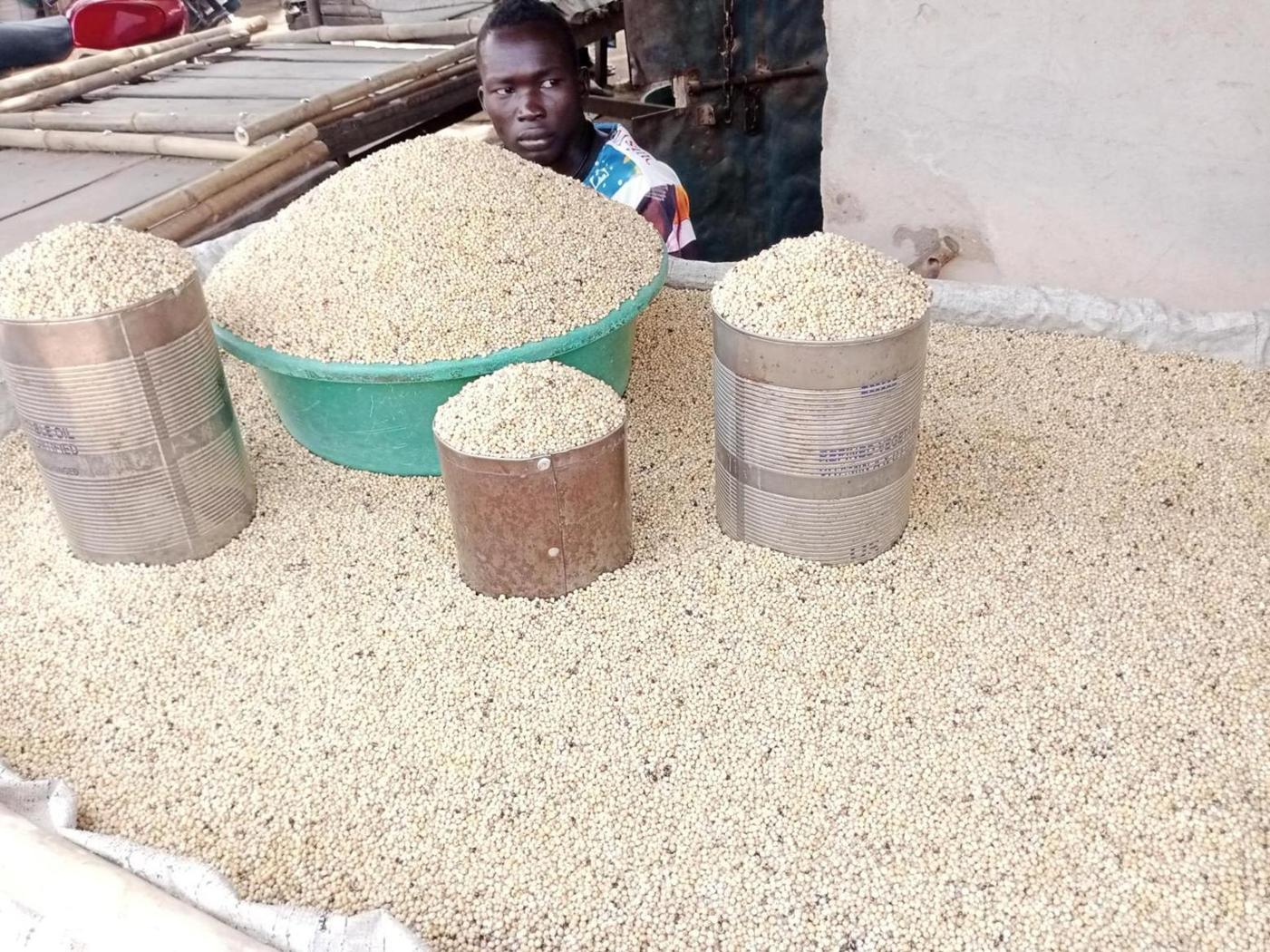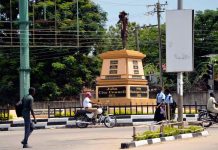Africa-Press – South-Sudan. Lakes State Minister of Trade and Industry has directed the reduction of prices of locally produced food and non-food items including sorghum, groundnuts and meat, a decision criticized by traders.
Rebecca Enock Machuoc has reduced the price of a 50-kilogram sack of sorghum from SSP50,000 to SSP40,000, and a kilogram of meat from 26,000 to 23,000, among others.
Minister Enock said the directive, reached during an economic crisis meeting, was aimed at making locally available goods affordable to consumers.
“These food items, such as dura and groundnuts, are locally produced within Lakes State. The reduction of the prices of local products will allow everyone to afford the price,” she said.
“We went to the auction market where traders sell cows for meat to assess the price of a cow, and to see also how many kilograms of meat a cow produces, and this is where we came to agree with butchers to reduce the price of meat from SSP26,000 per kilogram to SSP23,000 and the half will be sold at SSP11,500.”
Ms. Enock also said the price of mineral water from the Rumbek factory will be lowered. A small bottle of purified water has been reduced from SSP2,000 to SSP1,500 and the big bottle price from SSP4,000 to SSP3,000 across the state markets.
The trade minister said she does not believe the prices of water should be that high because it is locally produced in Rumbek. But she did not reflect on the cost of imported raw materials, including levies.
Minister Enock encouraged the state residents to prefer buying local produce which does not contain industrial chemicals, while claiming that manufactured maize flour imported from outside the country does not have any food value.
On his part, Deng Maker, a local trader in Rumbek market, contended that the cost of sorghum has shot up due to its scarcity in the market, a situation that prompted farmers from the villages to hike their prices.
Mr. Maker explained that he usually buys a basin of dura for SSP45,000 from the village farmers, and then he sold it at SSP50,000 to earn a profit of SSP5,000.
“Some of these farmers from the villages bring dura and other local items on a condition either to buy medicines for their family members or themselves,” Maker narrated.
“If you tell them the government has reduced the price of sorghum (dura), they will not agree and will ask you, ‘will the government treat my child or bring or buy what I want?’ You will end up accepting his price.”
“If you continue to argue with him, it may lead both of you to a quarrel and the government will not be there to address such a violation from the dura farmers who come with their items and sell dura at expensive prices to the traders in the market.”
The retail traders also raised concerns about excessive taxation by the same government reducing their prices.
“This is what made prices of local products expensive in the market. “We discussed this issue with the government, and we used to tell the government that the local produce is hardly available in the villages, and there are no commercial farmers who supply to the traders.”
Madom Machoth, a groundnut trader, said there are only subsistent farmers in the state. He called on the government to first ensure a conducive environment for agricultural activities and create extensive government farms, which can also employ young people.
“We have no farms in Lakes State, and it is when people have farms that all prices can go down and if there are no farms, it is impossible because the little food items that we get from the villagers and sell them are very little.”
He warned that if the state government persists with the unsustainable price reduction, local traders may abandon the market because it is not profitable.
Abraham Makuei Ajuac, the Chairperson of the Butchers Union in Rumbek, said after they agreed to reduce the price of meat with the government from SSP26,000 per kilogram of meat to SSP23,000, they now found out that it is not sustainable, and they have to renegotiate with the government.
He said a cow’s price is up in the auction market, although cattle cannot produce the required kilograms during the dry season because of lack of pasture.
He said a fat bull can only produce around 150 kilograms of meat when it is in the rainy season, but in the dry season, it only produces 110 kilograms.
He said a fat bull is sold at between SSP2 million to 3 million in the Rumbek auction and the price depends on the weight of the animal.
For More News And Analysis About South-Sudan Follow Africa-Press






